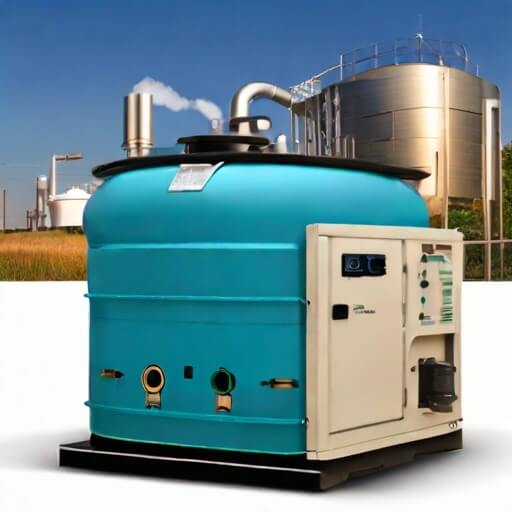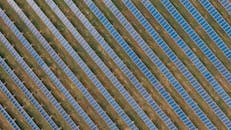Using hydro power in off-grid living
Table of Contents
- Using Hydro Power in Off-Grid Living
- Micro Hydro Systems
- Benefits of Micro Hydro Systems
- Challenges of Micro Hydro Systems
- Resources and Considerations
- Conclusion
Imagine living in a secluded cabin nestled amongst towering pines. Sunlight streams through the windows, birds chirp a gentle melody, and a crisp mountain breeze carries the scent of wildflowers. But this isn’t just any cabin – it’s a self-sufficient haven powered by the very essence of nature itself: hydropower.
For many, the concept of “off-grid living” conjures images of a rustic existence, disconnected from the conveniences of modern life. However, the reality is far more nuanced. Today, a growing number of individuals are embracing off-grid living as a way to live more sustainably, reduce their reliance on fossil fuels, and create a harmonious connection with the environment.
One of the biggest challenges of off-grid living is securing a reliable source of electricity. This is where hydropower comes in. By harnessing the power of moving water, we can generate clean and renewable energy, transforming a babbling brook or a rushing stream into a personal power plant. Compared to noisy and polluting fossil fuel generators, hydropower offers a quieter, cleaner, and more sustainable solution for off-grid electricity needs.
So, how does it work? Let’s delve deeper into the fascinating world of micro hydro systems and explore how they can turn your off-grid dream into a reality.
Using Hydro Power in Off-Grid Living
Micro hydro power offers a captivating solution for off-grid electricity generation. Unlike large-scale hydroelectric dams, micro hydro systems are designed for smaller water sources like streams, creeks, or irrigation canals. Perfect for powering remote cabins, eco-lodges, or sustainable homes, these systems boast several advantages:
- Renewable Energy Source: Unlike fossil fuels, hydropower utilizes the continuous flow of water, making it a clean and endlessly replenishable energy source.
- Reliable Power Generation: Micro hydro systems, when properly sized and installed, can provide a consistent and dependable source of electricity for off-grid applications.
- Low Maintenance: These systems require minimal maintenance compared to other off-grid energy options like generators.
- Long Lifespan: With proper care, micro hydro systems can operate for decades, offering a long-term return on investment.
Now, let’s explore the different types of micro hydro systems:
1. Run-of-the-River Systems:
These systems divert a portion of a stream’s flow through a channel or pipe to a turbine housed in a powerhouse. The flowing water spins the turbine blades, generating electricity. Run-of-the-river systems are ideal for locations with consistent water flow and moderate head (water pressure).
2. Impulse Systems:
Impulse systems, also known as penstock systems, utilize a high head of water (steep drop) and a smaller volume of water. Water is channeled through a pipe (penstock) and released through a nozzle, creating a powerful jet that spins the turbine blades. These systems are well-suited for locations with a significant elevation change but may not be suitable for areas with lower water flow.
3. Water Wheel Systems:
The most traditional type of micro hydro system, water wheels utilize a large wheel with paddles to capture the energy of flowing water. The water’s force rotates the wheel, which is connected to a shaft that spins the generator to produce electricity. Water wheel systems are generally less efficient than turbine-based systems but can be a simpler and potentially more affordable option for off-grid applications with low head and moderate water flow.
Choosing the right micro hydro system depends on several factors:
- Water Flow Rate: The amount of water flowing through your stream or source will determine the amount of electricity a system can generate.
- Head (Water Pressure): The vertical distance between your water source and the turbine plays a crucial role in power generation. Higher head translates to more power output.
- Power Requirements: Consider your daily electricity needs and choose a system that can meet your power consumption.
Remember, a qualified hydroelectricity professional can conduct a site assessment to determine the suitability of micro hydro for your location and recommend the most appropriate system based on your specific water resources and energy requirements.
Benefits of Micro Hydro Systems
Micro hydro systems offer a compelling combination of benefits for off-grid living:
Low Maintenance: Unlike generators that require regular fuel refills and oil changes, micro hydro systems require minimal maintenance. Once installed, these systems operate primarily using the power of flowing water, minimizing the need for frequent upkeep.
Long Lifespan: With proper care and maintenance, micro hydro systems can last for several decades. This translates to a long-term return on investment and reliable electricity generation for years to come.
Reliable Power Generation: When properly sized and installed based on your water flow rate and head, micro hydro systems can provide a consistent and dependable source of electricity for your off-grid needs. Unlike solar or wind energy, which are dependent on weather conditions, micro hydro systems continuously harness the energy of flowing water, offering a more reliable power source.
The DIY Appeal: For those with a knack for hands-on projects, the possibility of building a DIY micro hydro system can be enticing. However, it’s crucial to approach this with caution and careful planning.
Safety First: Micro hydro systems involve moving water and electricity, which can be dangerous if not handled properly. Thorough research, safety precautions, and a firm understanding of the engineering principles involved are essential for a successful DIY project. Consulting with a qualified hydroelectricity professional is highly recommended, even for DIY enthusiasts, to ensure proper system design, safety considerations, and compliance with local regulations.
Beyond the DIY approach: Numerous reputable companies specialize in micro hydro systems, offering pre-fabricated kits or customized solutions based on your specific needs. These companies can provide complete installation services or guidance for those who want to handle some aspects of the installation themselves.
By carefully weighing the advantages and considerations of micro hydro, you can make an informed decision about whether this sustainable energy source is the right fit for powering your off-grid dream.
Challenges of Micro Hydro Systems
While micro hydro offers alluring advantages for off-grid living, it’s important to acknowledge its limitations:
Dependence on Consistent Water Flow: Unlike solar or wind power, micro hydro systems rely on a consistent flow of water to generate electricity. Seasonal variations or dry periods can significantly impact power output. Careful assessment of your water source’s historical flow rates is crucial before investing in a micro hydro system.
Potential Environmental Impact: Micro hydro systems, while generally considered a clean energy source, can have some environmental impact. Diverting water for power generation can affect downstream ecosystems. Proper site assessment and responsible system design are essential to minimize these impacts.
Regulations and Permits: Installing a micro hydro system may require permits and approvals from your local government agencies. Regulations vary by region, so it’s crucial to research and comply with all relevant permitting processes before embarking on your micro hydro project.
Consulting a Professional: Given the technical aspects and potential environmental considerations, consulting with a qualified hydroelectricity professional is highly recommended. They can assess your site, determine the feasibility of micro hydro, recommend the most appropriate system size and type based on your water resources, and guide you through the permitting process.
Resources and Considerations
Micro hydro power has the potential to transform your off-grid dream into a reality. To help you navigate this exciting path, here are some valuable resources and considerations:
Reputable Micro Hydro System Companies:
- Acratec Hydro (US): https://www.ksat.com/business/2023/04/13/mini-hydro-company-raises-18m-to-generate-power-in-canals/ – Offers pre-fabricated micro hydro systems and customized solutions.
- Ecotec Power (Canada): https://www.energy.gov/energysaver/microhydropower-systems – Specializes in micro hydro systems for home and business applications.
- Turgo Water & Energy (International): https://www.youtube.com/watch?v=njNYuEKW-ek – Provides a wide range of micro hydro turbines and complete system solutions.
Online Resources and Educational Materials:
- International Hydropower Association (IHA): https://www.hydropower.org/ – Offers a wealth of information on hydropower, including resources on micro hydro.
- Micro Hydro Power (Website): https://www.energy.gov/energysaver/planning-microhydropower-system – Provides educational content and DIY guides for micro hydro systems (use with caution and prioritize professional consultation).
- US Department of Energy – Micro Hydropower: https://www.energy.gov/energysaver/microhydropower-systems – Offers information on the benefits and considerations of micro hydro systems.
Consulting a Qualified Hydroelectricity Professional:
The journey towards powering your off-grid haven with micro hydro is best undertaken with the expertise of a qualified professional. Here’s why:
- Site Suitability Assessment: A professional can evaluate your water source, assess the available flow rate and head, and determine if micro hydro is a viable option for your location.
- System Design and Selection: Based on your water resources and energy needs, they can recommend the most appropriate micro hydro system size and type.
- Environmental Considerations: They can help you design and implement a system that minimizes any potential environmental impact.
- Permitting and Regulations: They can guide you through the permitting process and ensure your system complies with all local regulations.
Safety First: Micro hydro systems involve working with moving water and electricity. Safety is paramount throughout the installation and operation of your system. It’s crucial to adhere to all safety guidelines and regulations, and consider consulting professionals for installation and maintenance services.
By exploring these resources and prioritizing professional guidance, you can harness the power of micro hydro to create a sustainable and self-sufficient off-grid lifestyle. Remember, a responsible approach ensures both the success of your project and the well-being of your local environment.
Conclusion
This blog post has explored the fascinating world of micro hydro systems, perfectly suited for powering remote homes and eco-lodges. We’ve delved into the different types of systems, the factors to consider when choosing one, and the importance of consulting a qualified professional for site assessment and system design.
Find out more about the best micro hydro power systems here!
Key Points to Remember:
- Micro hydro offers a clean, renewable, and reliable source of electricity for off-grid applications.
- These systems require minimal maintenance and boast a long lifespan compared to other off-grid energy options.
- Careful planning, professional guidance, and adherence to safety regulations are crucial for a successful micro hydro project.
Hydropower stands as a beacon of sustainability in the off-grid world. Unlike fossil fuels, it doesn’t contribute to greenhouse gas emissions, and unlike solar or wind power, it isn’t dependent on unpredictable weather conditions.
If you dream of a self-sufficient life powered by nature’s bounty, hydro power deserves a closer look. We encourage you to explore the resources provided in this blog post and delve deeper into the world of micro hydro systems.
Do you have questions about off-grid living or micro hydro power? Share your thoughts and experiences in the comments below! We’d love to create a community conversation around sustainable and self-sufficient living.


